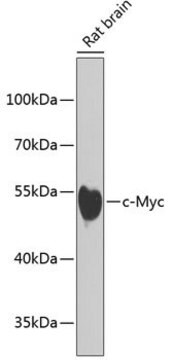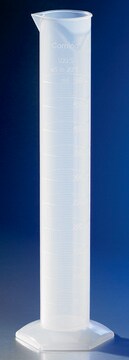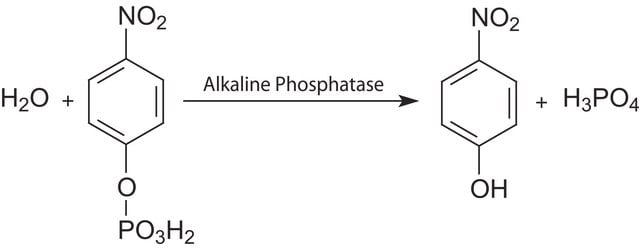SCC297
N2A Psen1/Psen2 Double Knockout Mouse Neuroblastoma Cell Line
Mouse
Sign Into View Organizational & Contract Pricing
All Photos(3)
About This Item
UNSPSC Code:
41106514
NACRES:
NA.81
biological source:
mouse
growth mode:
N/A
manufacturer/tradename:
Millipore
Recommended Products
Product Name
N2A Psen1/Psen2 Double Knockout Mouse Neuroblastoma Cell Line,
biological source
mouse
packaging
vial of >1X10⁶ cells
manufacturer/tradename
Millipore
growth mode
N/A
technique(s)
cell culture | mammalian: suitable
shipped in
dry ice
storage temp.
−196°C
General description
Early-onset Alzheimer s disease (AD), also termed autosomal dominant AD with early onset (ADAD), is a devastating neurodegenerative condition that is strongly linked to familial inheritance. The main cause of early-onset/familial AD is autosomal dominant
Application
- Each vial contains >1X106 viable cells.
Cells are tested negative for infectious diseases by a Mouse Essential CLEAR panel by Charles River Animal Diagnostic Services.
Cells are verified to be of mouse origin and negative for inter-species contamination from rat, Chinese hamster, Golden Syrian hamster, human and non-human primate (NHP) as assessed by a Contamination CLEAR panel by Charles River Animal Diagnostic Services.
Cells are negative for mycoplasma contamination.
The N2A Psen1/Psen2 cell line is a model for studies of presenilin function in the pathology of familial Alzheimer′s Disease. Early-onset Alzheimer′s disease (AD), also termed autosomal dominant AD with early onset (ADAD), is a devastating neurodegenerative disease that is strongly linked to familial inheritance. The main cause of early-onset/familial AD is autosomal dominant mutations in APP (amyloid precursor protein), PSEN1 (presenilin-1) or PSEN2 (presenilin-2).1 As catalytic subunits of γ-secretase complex, which cleaves APP to form amyloid beta peptides, Psen1 and Psen2 play significant roles in the formation of amyloid plaques. Variations in PSEN1/2 are frequently present in familial early-onset AD cases but their functional significance is unknown. Unraveling the functions of presenilin proteins is thus key to understanding the molecular pathology of AD.
Source
The N2A Psen1/2 cell line was derived via CRISPR/Cas9-editing of the parental N2A mouse neuroblastoma cell line.2 The N2A (Neuro2a) parental cell line was derived from neuroblastoma stem cells of a male strain A/J mouse.4
References
1. Holtzman DM, Morris JC. Goate AM. Sci Transl Med 2011; 3(77): 77sr1.
2. Pimenova AA, Goate AM. Neurobio Dis 2020; 138:104785.
3. Lee E-S, Jeong S-J, Kim Y-H, Jeon C-J. Acta Histochem Cytochem 2015; 48(6): 205-214.
4. Olmsted JB, Carlson K, Klebe R, Ruddle F, Rosenbaum J. Proc Natl Acad Sci USA 1970; 65(1): 129-136.
Source
The N2A Psen1/2 cell line was derived via CRISPR/Cas9-editing of the parental N2A mouse neuroblastoma cell line.2 The N2A (Neuro2a) parental cell line was derived from neuroblastoma stem cells of a male strain A/J mouse.4
References
1. Holtzman DM, Morris JC. Goate AM. Sci Transl Med 2011; 3(77): 77sr1.
2. Pimenova AA, Goate AM. Neurobio Dis 2020; 138:104785.
3. Lee E-S, Jeong S-J, Kim Y-H, Jeon C-J. Acta Histochem Cytochem 2015; 48(6): 205-214.
4. Olmsted JB, Carlson K, Klebe R, Ruddle F, Rosenbaum J. Proc Natl Acad Sci USA 1970; 65(1): 129-136.
Features and Benefits
The N2A Psen1/2 cell line is a unique tool for the assessment of the contribution of PSEN mutations to AD pathology and widens the path to targeted therapies for AD and related neurodegenerative diseases.
Storage and Stability
Cells should be stored in liquid nitrogen until use. The cells can be cultured for at least 10 passages after initial thawing without significantly affecting the cell marker expression and functionality.
Other Notes
This product is intended for sale and sold solely to academic institutions for internal academic research use per the terms of the “Academic Use Agreement” as detailed in the product documentation.
Disclaimer
Unless otherwise stated in our catalog or other company documentation accompanying the product(s), our products are intended for research use only and are not to be used for any other purpose, which includes but is not limited to, unauthorized commercial uses, in vitro diagnostic uses, ex vivo or in vivo therapeutic uses or any type of consumption or application to humans or animals.
Storage Class Code
10 - Combustible liquids
WGK
WGK 1
Flash Point(F)
Not applicable
Flash Point(C)
Not applicable
Certificates of Analysis (COA)
Search for Certificates of Analysis (COA) by entering the products Lot/Batch Number. Lot and Batch Numbers can be found on a product’s label following the words ‘Lot’ or ‘Batch’.
Already Own This Product?
Find documentation for the products that you have recently purchased in the Document Library.
Our team of scientists has experience in all areas of research including Life Science, Material Science, Chemical Synthesis, Chromatography, Analytical and many others.
Contact Technical Service







